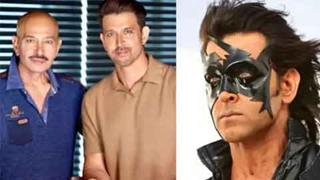After churning out some of Bollywood's biggest blockbusters since 1976, filmmaker Subhash Ghai is all set to turn teacher - at his own Mumbai-based film
institute.
His latest passion is Whistling Woods International, the institute for film, television and media arts in Goregaon.
"We all need to go on to different things. Of course, filmmaking is my calling but the institute is my passion right now. There is so much talent in India that needs a platform.
Whistling Woods is going to be a world-class institute, the only one of its kind in Asia," tells Ghai during a visit here.
While direction still excites him, he wants to explore other areas of the business, "especially teaching". "I love to teach and hope to do some at the institute."
He has written and directed 15 films since 1976, at least 13 of which are considered blockbusters.
Ghai, 60, who enjoys a premier reputation in the world's most prolific commercial cinema industry, said: "As Indian cinema expands further, it will have to become more
competitive and I think the institute will offer us that edge."
The institute will begin admission in October this year but the semesters will begin in January 2006.
The institute offers courses in cinematography, direction, editing, production, sound recording and design, screenwriting and acting.
Its full-time two-year programme offers 84 weeks of hands-on filmmaking.
Students of cinematography, direction, editing, production, sound recording and design and screenwriting are required to first complete the five-month foundation course.
They can then choose a specialisation.
Ghai began his career as an actor after graduating from the Film Institute of India in 1970 but soon recognised that he was more at home writing and directing.
His first directorial film, "Kalicharan" (1976), was one of the biggest hits of the year and established him as a filmmaker of promise.
He followed up the debut with films like "Karz", "Hero", "Karma", "Ram Lakhan", "Saudagar", "Prem Deewane", "Khalnayak", "Trimurti", "Pardes", "Taal" and
"Yadein".
His personal reputation soared so much that he began to be called the industry's Midas who somehow knew what the audience wanted. Although his last film, "Kisna", did
not do well at the box office, Ghai himself takes a charitable view.
"History will judge 'Kisna' differently. In time it will be considered a classic," he said.
On whether he feels the pressures of having to produce a hit every time he makes a film, he said: "I don't let pressures get me. I have to make something that I enjoy first.
What I enjoy will be hopefully enjoyed by audiences."
Ghai has made a name for himself in direction as well as writing screenplays of his films. Asked which aspect of his career he enjoys the most, he said: "Clearly writing
because everything begins with it."
His company Mukta Arts was among the first to accept the inevitability of corporatising an essentially chaotic trade when it came out with an Initial Public Offering. Mukta
Arts now is a publicly traded company in India.
"Corporatisation, which Amitabh Bachchan also began, requires a certain amount of discipline. The industry needed that level of discipline.
"It meant scripts had to be ready, locations finalised, actors' dates firmed up and targets set up. I am happy that the industry has understood that."
Asked why the Indian cinema industry was not able to match the revenue figures of Hollywood, Ghai said: "If you look at the ticket sales, India and the US are nearly the
same. Where we lose out is on the currency valuation.
"The rupee is weaker than the dollar. So while we may be selling as many tickets, our revenues are significantly less in dollar terms."
Subhash Ghai - raring to teach the Midas touch
Tuesday, May 03, 2005 17:53 IST



















